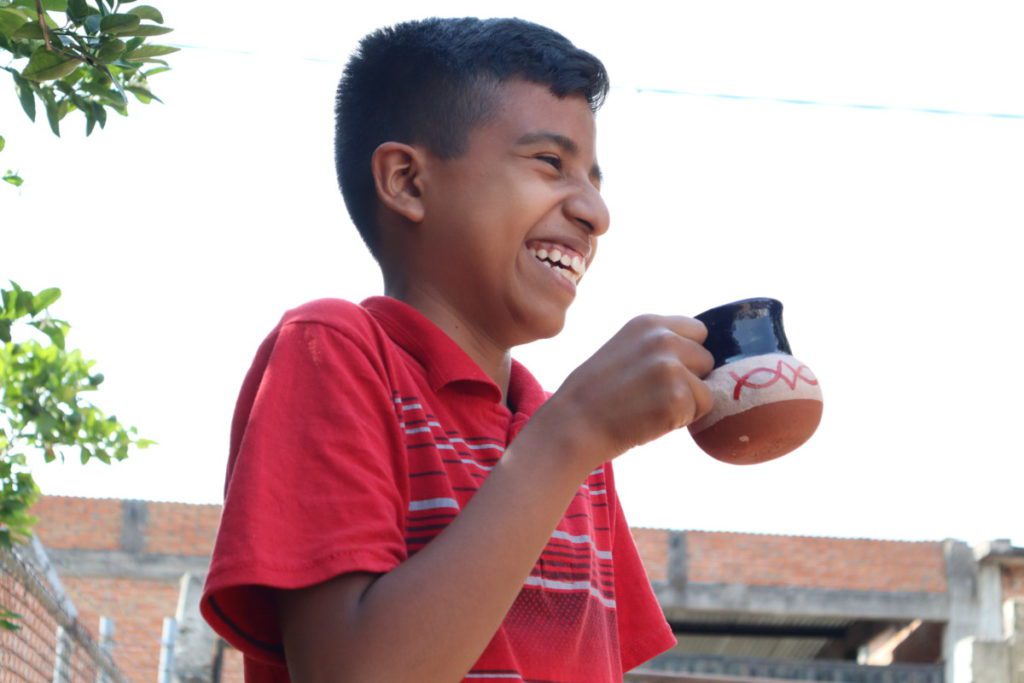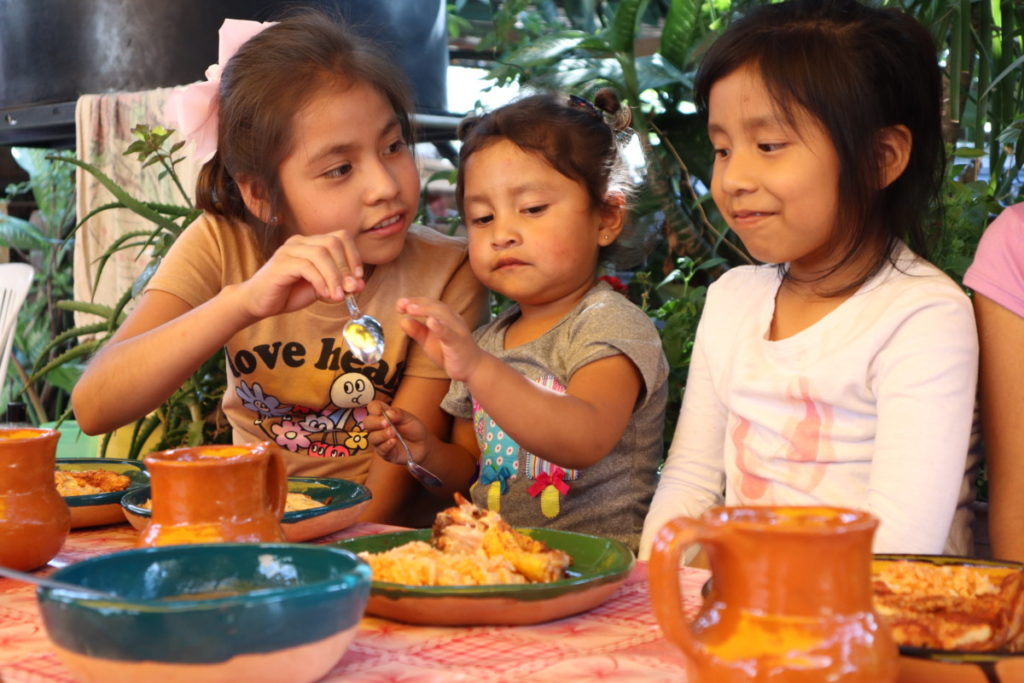Lead poisoning in Mexico is an urgent health problem that can cause brain damage, IQ loss, and other developmental delays especially in children who eat food prepared and served in lead-glazed pottery. Despite the fact that almost half of all potters in the country are women, tradition had brought mostly men to Pure Earth workshops aimed at helping artisans transition to lead-free techniques. To include women, Pure Earth created the Circle of Women (Circulo de Mujeres) project to empower women in the community, and help them market their lead-free pottery and grow their business while safeguarding their health and the health of future generations. Pure Earth has established at least eight Women’s Circles in three states across Mexico.
Pure Earth experts around the world report that when women are involved in interventions, polluted communities are more likely to see positive, lasting change. Mexico is no exception. Here are two stories from the Circle of Women that was originally published in Spanish.
Manuel plays soccer today!

The García house was very sad and silent for a long time because Manuel, the youngest son of this family of potters, had serious health problems that the doctors could not explain.
Doña Adela, his mother, spent a lot of time taking care of him and taking him to the doctors, but no one could explain why the boy vomited almost everything he ate, and what was causing this sharp and constant stomach pain that was consuming him little by little and which forced him to spend most of the day asleep. Manuel, just 9 years old, had been sick for 3 years and his symptoms only got worse.
The list of doctors, medicines and studies became endless and although the García pottery workshop was one of the most successful in Acteopan, and the one with the most sales, there was not enough money to pay the bills in their search of an accurate diagnosis and a definitive cure.
After years of despair, the arrival of Pure Earth Mexico in the municipality of Acteopan in 2020 was an event that gave an unexpected turn to the life of this family when Doña Adela joined the Circle of Women, the project that Pure Earth implemented in the town to support potters in their transition to lead-free glazes.
In one of the Circle sessions, the Pure Earth team informed the attendees that they and their families would be tested for lead in their blood to identify those with high levels and to monitor whether, with the transition to lead-free enamels, the numbers decreased or stayed the same.
All the women agreed to take the sample and immediately gathered their children and husbands to be tested. Doña Adela arrived with Manuel who reluctantly, and tired, as always, allowed himself to be analyzed. The next day, the Pure Earth team personally sought out Doña Adela to inform her that her son had the highest levels of lead out of the entire sample and that all his inexplicable health problems were most likely related to that. with
Doña Adela, perplexed and a little skeptical, but determined to do anything for her son’s health, spent a whole month making new casseroles, pots, and comales with lead-free enamels. As soon as she finished, she discarded the old ones and began cooking with lead-free pottery.
A few months passed before Manuel recovered but as soon as he did, his evolution was surprising and without relapses. Manuel went from being a low-energy kid who didn’t play and skipped school, to being one of the best defensemen on his soccer team. With the lead-free glazes, joy and hope returned to the García’s house. The family never went back to using toxic lead oxide in the glaze of their pottery production, neither for their own pots nor for those they sell.
A circle of hope for two sisters

Doña Martina gets up very early to serve breakfast to her daughters, Mónica, 6, and Jesusa, 4, who run to get hot chocolate. Now she is calm and confident because Monica is a healthy and alert child. Two years ago, her eldest daughter’s health condition was worrisome. She was always lethargic and tired, seemed to have no enthusiasm, and her lack of development made her repeat two years of school.
Martina and her husband Roberto work every day in their pottery workshop so that their two daughters can make the most of school, but with Mónica’s illness and Jesusa’s health beginning to deteriorate, the future was upsetting.
Doña Martina had to go to school because Monica was at risk of losing another year. Outside, she heard some mothers talking about the Women’s Circles that Pure Earth formed to provide training in lead-free glazes to potters from Cohuecan, Puebla. She reached out to find out more and was invited to join.
In the first workshop, Martina learned about the harmful effects of lead on health. A few weeks later, the Pure Earth Mexico staff tested all the potters and their families for lead. This was how Martina discovered that both Mónica and Jesusa had high levels of lead in their blood.
The lead-free enamel workshops and the support of the Circle of Women allowed Martina to produce lead-free products to protect the health of her family and that of her clients. With the adoption of lead-free glazes, and the replacement of their old pots and pans, in a few months their two children improved considerably.
Today, Martina is happy because she knows that her children are healthy and that her future is full of opportunities. That feeling that Martina has is the same one that she shares with her community and it is one that she had lost for a long time: Hope.
Lead poisoning in Mexico is an urgent health problem that can cause developmental delays, conduct disorders, and premature brain aging in children who eat food prepared and served in lead-glazed pottery.
Pure Earth México works with pottery communities and in 2020 began the Circle of Women program that offers lead-free enamel workshops, financial education, technical advice, and blood lead tests. To date, 8 Women’s Circles have been created in three states of Mexico.
Pure Earth Mexico continues to work to promote lead-free pottery and improve the health of the entire population. More and more communities and families, like Martina’s, are receiving the support that allows them a healthier life.





